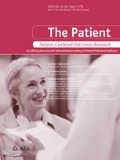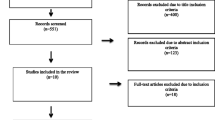Abstract
Background
To complement the clinical and therapeutic knowledge about the symptoms, prognosis, and social implications of amyotrophic lateral sclerosis (ALS), health research and care need to develop methods that capture and communicate the unique individual impact on daily living with the disease.
Objective
To explore how narrative journalistic stories can communicate experiences of daily living with ALS and compensate the progressive loss of the ability to speak.
Methods
Twenty-four interviews at home with six people diagnosed with ALS were transformed into narrative journalistic stories. A formal readership was selected by the participant among his or her most significant health professionals. Topics of stories were categorized and selected themes analysed and interpreted.
Results
The stories communicated daily living with ALS as a continuous process of creating a new normality of everyday life. The stories also revealed conflicting views between patient and professionals regarding information about disease and prognosis. The approach used provided an understanding of the individual healthcare professionals’ engagement with the patient.
Conclusions
The narrative journalistic story enhances communication about daily living with ALS by offering a mode of sharing experiences that compensate the progressive loss of communicative abilities. The story sustains meaning for patients living with ALS, and supports them in appreciating a day-to-day life where they are not just waiting for death. Narrative journalistic storytelling may educate health professionals to more effectively comprehend that a medical prognosis should be complemented by understanding the individual’s unique experience of vulnerability. In particular, this applies to severe rare diseases where insight is difficult to obtain.
Similar content being viewed by others
References
National Institutes of Neurological Disorders and Stroke. Amyotrophic lateral sclerosis (ALS) fact sheet. Publication date June 2013. NIH Publication No. 13-916. http://www.ninds.nih.gov/disorders/amyotrophiclateralsclerosis/detail_ALS.htm. Accessed 15 Apr 2014.
Bolmsjö I. Existential issues in palliative care: interviews of patients with amyotrophic lateral sclerosis. J Palliat Med. 2001;4:499–505.
Boston P, Towers A, Barnard D. Embracing vulnerability: risk and empathy in palliative care. J Palliat Care. 2001;17:248–53.
Bolmsjö I, Hermerén G. Conflicts of interest: experiences of close relatives of patients suffering from amyotrophic lateral sclerosis. Nurs Ethics. 2003;10:186–98.
Hecht M, Hillemacher T, Grasel E, et al. Subjective experience and coping in ALS. Amyotroph Lateral Scler. 2002;3:225–31.
Kaufert J, Koch T. Disability or end-of-life? Competing narratives in bioethics. Theor Med Bioeth. 2003;24:459–69.
Ball LJ, Beukelman DR, Pattee GL. Communication effectiveness of individuals with amyotrophic lateral sclerosis. J Commun Disord. 2004;37:197–215.
Murphy J. Communication strategies of people with ALS and their partners. Amyotroph Lateral Scler. 2004;5:121–6.
Brown J, Addington-Hall J. How people with amyotrophic lateral sclerosis talk about living with their illness: a narrative study. J Adv Nurs. 2008;62:200–8.
Fanos JH, Gelinas DF, Foster RS, et al. Hope in palliative care: from narcissism to self-transcendence. J Palliat Med. 2008;11:470–5.
Brown J. User, carer and professional experiences of care in amyotrophic lateral sclerosis. Prim Health Care Res Dev. 2003;4:207–17.
King SJ, Duke MM, O’Connor BA. Living with amyotrophic lateral sclerosis/amyotrophic lateral sclerosis (ALS/ALS): decision-making about ‘ongoing change and adaptation’. J Clin Nurs. 2009;18:745–54.
Locock L, Ziebland S, Dumelow C. Biographical disruption, abruption and repair in the context of amyotrophic lateral sclerosis. Sociol Health Ill. 2009;31:1043–58.
Oliver D, Borasio GD, Walsh D. Palliative care in amytrophic lateral sclerosis. 2nd ed. Oxford: Oxford University Press; 2006.
Ng L, Khan F. Multidisciplinary care for adults with amyotrophic lateral sclerosis or motor neuron disease. Cochrane Database Syst Rev. 2009;(4):CD007425.
Sakellariou D, Boniface G, Brown P. Experiences of living with amyotrophic lateral sclerosis: a review of qualitative research. Disabil Rehabil. 2013;35:1765–73.
Whitehead B, O’Brien MR, Jack BA, Mitchell D. Experiences of dying, death and bereavement in amyotrophic lateral sclerosis: a qualitative study. Palliat Med. 2012;26:368–78.
Bingley AF, Thomas C, Brown J, et al. Developing narrative research in supportive and palliative care: the focus on illness narratives. Palliat Med. 2008;22:653–8.
Ragan SL, Wittenberg-Lyles EM, Goldsmith J, Sanchez-Reilly S. Communication as comfort: multiple voices in palliative care. New York: Routledge; 2008: p. 2–25.
Healthtalkonline.org. Motor neurone disease. http://healthtalkonline.org/peoples-experiences/nerves-brain/motor-neurone-disease-mnd/topics. Accessed 15 Apr 2014.
Healthtalkonline.org. The research. http://healthtalkonline.org/research/research-methods). Accessed 15 Apr 2014.
Kelly SE. Qualitative interviewing techniques and styles. In: Bourgeault I, Dingwall R, de Vries R, editors. The SAGE handbook of qualitative methods in health research. London: SAGE Publications; 2010.
Frank AW. The wounded storyteller: body, illness, and ethics. Chicago: The University of Chicago Press; 1995.
Frank AW. Letting stories breathe: a socio-narratology. Chicago: The University of Chicago Press; 2010.
Radley A. Works of illness. Narrative, picturing and the social response to serious disease. Ashby-de-la-Zouch: InkerMen Press; 2009.
Charon R. Bridging health care’s divides. What is narrative medicine? In: Narrative medicine. Honoring the stories of illness. New York: Oxford University Press; 2006.
Hydén L, Brockmeier J. From the retold to the performed story. In: Health, illness and culture: broken narratives. New York: Routledge; 2008.
Jeppesen J, Hansen HP. Narrative journalism as complementary inquiry. Qual Stud. 2011;2:98–117.
Jeppesen J, Gredal O, Rahbek J, Hansen HP. Journalistic narrative can complement health professional understanding in rehabilitation [in Danish]. Ugeskr Laeger. 2012;174:2079–81.
Jeppesen J. Rehabilitation with stories: a socio-narratological study of journalistic storytelling as a method to understand the patient as fellow human being. PhD thesis [in Danish], ISBN 978-87-90367-3. Odense: Print & Sign, University of Southern Denmark; 2013.
Kramer M, Call W. Telling true stories: a nonfiction writers’ guide from the Nieman Foundation at Harvard University. New York: Plume, Penguin Group; 2007.
Harrington W. A writer’s essay: seeking the extraordinary in the ordinary. In: Harrington W, editor. Intimate journalism: the art and craft of reporting everyday life. California: Sage Publications; 1997.
Rehabilitation as narrative: stories about everyday life, health and rehabilitation with amyotrophic lateral sclerosis. Aarhus: The Rehabilitation Centre for Neuromuscular Diseases [website in Danish]. http://www.rcfm.dk/forskning-udvikling/rehabilitering-som-fortaelling/. Accessed 15 Apr 2014.
Trail M, Nelson ND, Van JN, Appel SH, Lai EC. A study comparing patients with amyotrophic lateral sclerosis and their caregivers on measures of quality of life, depression, and their attitudes toward treatment options. J. Neurol. Sci. 2003;2003(209):79–85.
Wasner M, Bold U, Vollmer T. Borasio GD (2004) Sexuality in patients with amyotrophic lateral sclerosis and their partners. J Neurol. 2004;251:445–8.
Marsden R, Botell R. Discussing sexuality with patients in a motor neurone disease clinic. Nurs Stand. 2010;2010(25):39–45.
O’Brien M, Whitehead B, Jack B, Douglas M. The need for support services for family carers of people with motor neurone disease (MND): views of current and former family caregivers. A qualitative study. Disabil Rehabil. 2012;2012(34):247–56.
Funding
This study was funded by the Danish Ministry of Science, Innovation and Higher Education (grant reference number 09-053456), the national Rehabilitation Centre for Neuromuscular Diseases (RehabiliteringsCenter for Muskelsvind), and the Neuromuscular Patient Association (Muskelsvindfonden).
Author Contributions
Jørgen Jeppesen: conception and design, interviews and writing of stories, analysis and interpretation of data, drafting the article; Jes Rahbek: conception and design; Ole Gredal: design and acquisition of data; Helle Ploug Hansen: analysis and interpretation of data, revision and editing the manuscript. All authors critically reviewed and approved the final manuscript. Jørgen Jeppesen is the guarantor for the content of the manuscript.
Conflict of interest
Jørgen Jeppesen, Jes Rahbek, Ole Gredal and Helle Ploug Hansen declare no conflicts of interest.
Author information
Authors and Affiliations
Corresponding author
Electronic supplementary material
Below is the link to the electronic supplementary material.
Rights and permissions
About this article
Cite this article
Jeppesen, J., Rahbek, J., Gredal, O. et al. How Narrative Journalistic Stories Can Communicate the Individual’s Challenges of Daily Living with Amyotrophic Lateral Sclerosis. Patient 8, 41–49 (2015). https://doi.org/10.1007/s40271-014-0088-6
Published:
Issue Date:
DOI: https://doi.org/10.1007/s40271-014-0088-6




